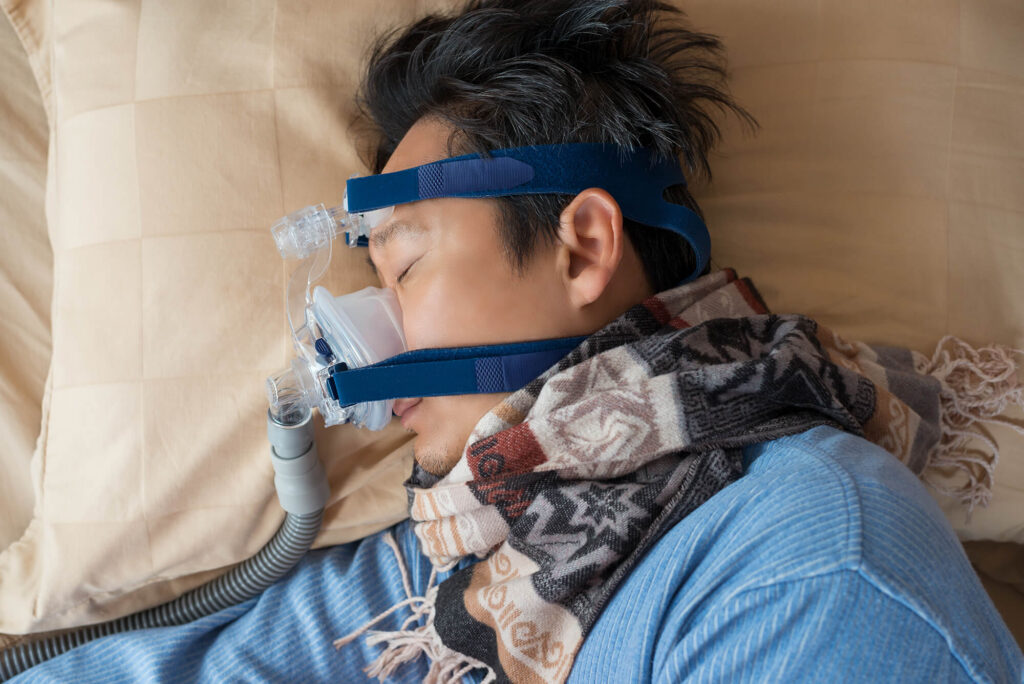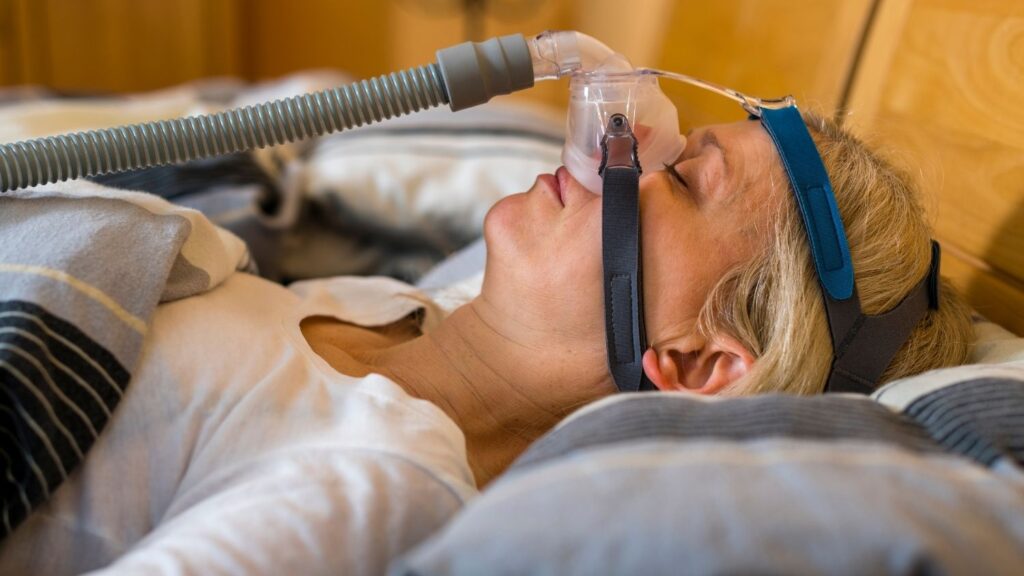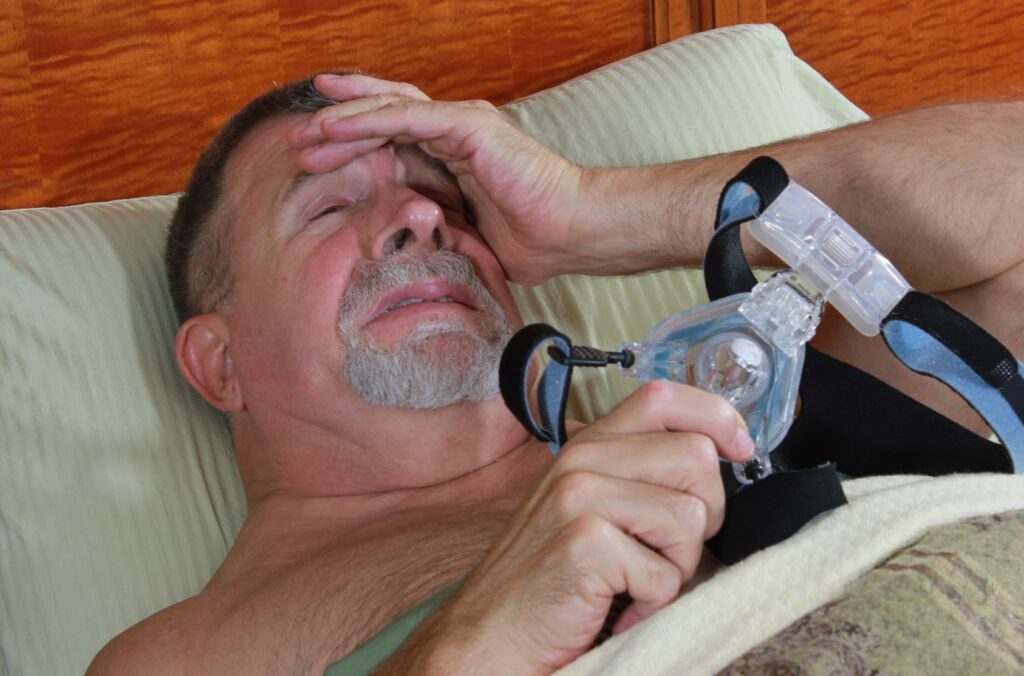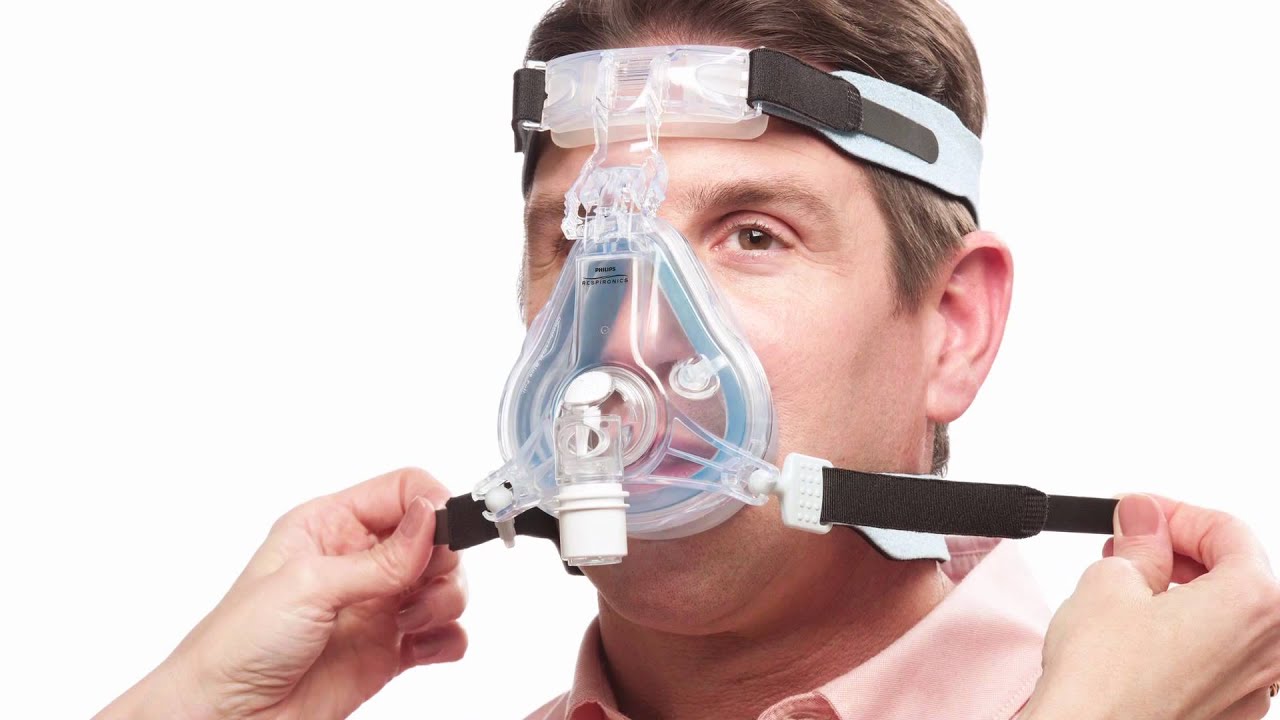CPAP masks play a crucial role in the treatment of sleep apnea. If you suffer from this condition, you know how important it is to find a mask that provides comfort and ensures compliance with your therapy.
In this guide, we will explore the different types of cpap mask brands available and provide tips on how to choose the best one for your needs.
Understanding the Importance of CPAP Masks
CPAP masks are an essential component of continuous positive airway pressure (CPAP) therapy. They work by delivering a controlled flow of air to help keep your airway open while you sleep. Without a proper seal and fit, the effectiveness of the therapy may be compromised.
But why are CPAP masks so crucial in the treatment of sleep apnea? Let’s delve deeper into their role and significance.
The Role of CPAP Masks in Sleep Apnea Treatment
Sleep apnea is a disruptive sleep disorder characterized by pauses in breathing or shallow breathing during sleep. These interruptions can occur multiple times throughout the night, leading to fragmented sleep and a host of health issues.
CPAP masks play a vital role in addressing this issue by preventing the airway from collapsing. By delivering a continuous stream of pressurized air, the masks help keep the airway open, allowing for uninterrupted breathing throughout the night. This ensures that your body receives the oxygen it needs, reducing the frequency and severity of apnea episodes.

Moreover, CPAP masks come in various styles and sizes to cater to individual needs. From nasal masks that cover only the nose to full-face masks that cover the nose and mouth, there is a wide range of options available to ensure maximum comfort and effectiveness.
See Also: Eye diseases that can make older adults visit a Sydney eye clinic
Why Comfort and Compliance Matter in CPAP Therapy
While the functionality of CPAP masks is crucial, comfort and compliance are equally important factors in the success of CPAP therapy.
When your mask is comfortable to wear, you are more likely to use it consistently. Comfortable masks are designed with soft, hypoallergenic materials that minimize skin irritation and pressure points. They also feature adjustable straps and cushioning to provide a customized fit, ensuring that you can sleep peacefully without discomfort.
Compliance, on the other hand, refers to your willingness and ability to adhere to the prescribed therapy. It is no secret that wearing a mask during sleep can take some getting used to. However, masks that are unpleasant to wear may lead to non-compliance, resulting in ineffective treatment.
That is why manufacturers continuously strive to improve mask designs, focusing on enhancing comfort and usability. Innovations such as lightweight materials, quieter airflow, and minimalistic designs have made CPAP masks more user-friendly than ever before.
Furthermore, many CPAP masks now come with additional features like integrated humidifiers, which help alleviate dryness and congestion commonly associated with therapy. These features not only enhance comfort but also contribute to better compliance, ensuring that you receive the full benefits of CPAP therapy.
In conclusion, CPAP masks are not just simple accessories in sleep apnea treatment. They are essential tools that play a crucial role in maintaining airway patency and improving sleep quality. By prioritizing comfort and compliance, manufacturers continue to innovate and improve CPAP mask designs, making them more comfortable and user-friendly. So, if you are undergoing CPAP therapy, make sure to choose a mask that fits well and feels comfortable, as it can make a world of difference in your treatment journey.
Key Factors to Consider When Choosing a CPAP Mask
When selecting a CPAP mask, there are several factors to consider to ensure a good fit and optimal comfort.
Choosing the right CPAP mask is crucial for effective sleep apnea treatment. It’s not just about finding a mask that fits your face; it’s about finding one that suits your breathing style, sleep position, lifestyle, and personal preferences. Let’s dive deeper into these key factors to help you make an informed decision.
Assessing Your Breathing Style
Take note of whether you primarily breathe through your nose or mouth while sleeping. This will help determine the type of CPAP mask that is most suitable for you.
If you are a nose breather, a nasal mask or nasal pillow mask may be the best choice for you. These masks cover only your nose, allowing you to breathe comfortably. On the other hand, if you are a mouth breather, a full-face mask that covers both your nose and mouth might be more appropriate. This type of mask ensures that the pressurized air from the CPAP machine reaches your airways effectively.
It’s important to consider any breathing difficulties or allergies you may have. If you suffer from nasal congestion or allergies, a nasal mask with built-in humidification features can help alleviate these issues.
Considering Your Sleep Position
Think about the position in which you most commonly sleep. This will impact the type of mask that will provide the best fit and minimize leaks.
If you are a back sleeper, a nasal mask or nasal pillow mask can be a good choice as they are less likely to shift or move during the night. Side sleepers, on the other hand, may benefit from a mask with adjustable straps or a mask specifically designed for side sleeping. These masks are designed to stay in place even if you toss and turn throughout the night.
It’s worth noting that some masks are more prone to leaks than others, especially if you change positions frequently during sleep. Look for masks with a good seal and adjustable headgear to minimize leaks and ensure a consistent airflow.
Factoring in Your Lifestyle and Personal Preferences
Your lifestyle and personal preferences should also play a role in your mask choice. For example, if you are an active sleeper or prefer minimal coverage, certain mask styles may be more suitable for you.
If you lead an active lifestyle or tend to move around a lot during sleep, a nasal pillow mask or a lightweight nasal mask can be a great option. These masks are less bulky and provide a more natural feel, allowing you to move freely without feeling restricted.
For those who prefer minimal coverage, there are mask options that have minimal contact with the face, such as nasal pillows or nasal cradle masks. These masks are designed to be lightweight and less intrusive, providing a more open and comfortable experience.

Additionally, consider the noise level of the mask. Some masks are designed to be quieter, which can be beneficial if you are a light sleeper or share a bed with a partner.
By carefully considering your breathing style, sleep position, lifestyle, and personal preferences, you can find a CPAP mask that fits you perfectly. Remember, finding the right mask is essential for comfortable and effective sleep apnea treatment, so take your time, consult with your healthcare provider, and try different options until you find the one that suits you best.
Types of CPAP Masks and Their Features
When it comes to managing sleep apnea, CPAP masks play a crucial role in ensuring a restful night’s sleep. These masks come in various styles, each with its own set of features and benefits. Let’s take a closer look at the different types of CPAP masks available:
Full Face CPAP Masks
Full face CPAP masks are a popular choice for individuals who breathe through their mouth or experience nasal congestion. As the name suggests, these masks cover both the nose and mouth, providing a secure seal that minimizes air leaks. The advantage of full face masks is that they allow for unrestricted breathing, regardless of whether you breathe through your nose or mouth. Additionally, they are less prone to shifting during sleep, ensuring a consistent flow of pressurized air.
Nasal CPAP Masks
For those who primarily breathe through their nose, nasal CPAP masks are an excellent option. These masks cover only the nose, leaving the mouth free. They are lightweight and less obtrusive, allowing for a greater field of vision. Nasal masks are designed to provide a comfortable fit, with adjustable headgear and cushioning to prevent skin irritation. The compact design of nasal masks makes them an ideal choice for individuals who prefer a more minimalistic approach to their sleep therapy.
Nasal Pillow CPAP Masks
If you’re looking for the least invasive option, nasal pillow CPAP masks might be the perfect fit for you. These masks consist of small inserts that fit directly into the nostrils, providing a minimalistic design that eliminates the need for headgear or straps. Nasal pillow masks are incredibly lightweight and offer a high level of comfort. They are particularly well-suited for individuals who prefer less facial coverage or those who feel claustrophobic with traditional masks. Despite their small size, nasal pillow masks deliver effective therapy by providing a direct stream of pressurized air to the nasal passages.
Choosing the right CPAP mask is crucial for achieving optimal sleep apnea therapy. It’s important to consider your individual needs, preferences, and comfort level when selecting a mask. Whether you opt for a full face, nasal, or nasal pillow mask, the key is to find one that fits well, provides a secure seal, and allows for a comfortable night’s sleep. Remember, consulting with a healthcare professional or sleep specialist can help guide you in making the best choice for your specific needs.
Tips for Ensuring Comfort and Compliance with Your CPAP Mask
Living with sleep apnea can be challenging, but using a CPAP mask can greatly improve your quality of sleep and overall health. However, to truly benefit from this therapy, it is important to ensure that your CPAP mask fits properly, is well-maintained, and addresses any common problems that may arise.
Achieving the Right Fit
When it comes to CPAP masks, one size does not fit all. Each person has unique facial features and needs, so it is crucial to consult with your healthcare provider or CPAP supplier to ensure you have the correct size and style of mask for your needs. They can help you determine whether a nasal mask, nasal pillow mask, or full-face mask is the best option for you.
Additionally, they can guide you in adjusting the straps and headgear to achieve a secure and comfortable fit. Proper fitting is not only important for your comfort but also for the effectiveness of the therapy. A well-fitted mask will minimize air leaks and ensure that you receive the optimal pressure needed to keep your airway open during sleep.

Maintaining Your CPAP Mask
Regular cleaning and maintenance of your CPAP mask are essential for hygiene and longevity. It is important to follow the manufacturer’s instructions for cleaning and replacement parts to prevent the buildup of bacteria or deterioration of the mask.
Typically, the mask should be washed daily with mild soap and warm water. Avoid using harsh chemicals or abrasive materials that may damage the mask. Allow the mask to air dry completely before using it again. Additionally, it is recommended to replace the mask and its components, such as cushions and headgear, as recommended by the manufacturer or your healthcare provider.
By maintaining your CPAP mask properly, you can extend its lifespan and ensure that it continues to provide effective therapy for your sleep apnea.
Dealing with Common CPAP Mask Problems
While CPAP therapy is highly effective, there can be some common problems that may affect the compliance and comfort of CPAP masks. One of the most common issues is leaking, which can disrupt your sleep and reduce the effectiveness of the therapy.
If you experience leaking, it is important to check the fit of your mask. Adjust the straps and headgear to ensure a snug fit without being too tight. Sometimes, the mask may need to be replaced if it is worn out or damaged.
Discomfort is another issue that some CPAP users may encounter. If you find the mask uncomfortable, try using cushion pads or nasal gels to provide additional padding and reduce pressure points. Experimenting with different mask styles or sizes may also help alleviate discomfort.
Excessive noise from the mask can be bothersome and disruptive to your sleep. In such cases, it is advisable to check for any loose connections or damaged parts. Sometimes, a simple adjustment or replacement of certain components can resolve the noise issue.
If you continue to experience problems with your CPAP mask, it is important to discuss them with your healthcare provider. They can provide troubleshooting options and offer alternative solutions to ensure that you receive the full benefits of your sleep apnea therapy.
In conclusion, selecting the best CPAP mask for your needs is crucial to ensure comfort and compliance in your sleep apnea therapy. Consider your breathing style, sleep position, and personal preferences when choosing from the different types of CPAP masks available. Remember to maintain and clean your mask regularly to optimize its performance. By following these tips, you can achieve optimal comfort and compliance, leading to a more effective treatment for your sleep apnea.

